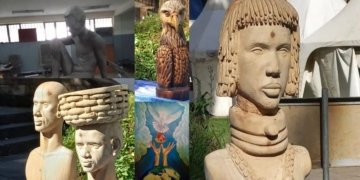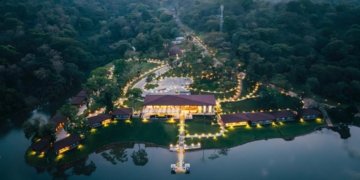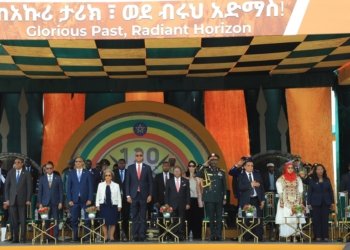DOUALA, Cameroon (BG) – Africa’s profound cultural, historical, and educational treasures have again received global recognition as UNESCO expanded its heritage lists and networks with notable entries from across the continent in 2024.
These recognitions, from historical sites to intangible traditions and learning cities, underscore Africa’s pivotal role in the global cultural and educational landscape.
Here’s a detailed look at the 2024 additions and their significance:
1. World Heritage Sites
- Africa’s historical and archaeological wealth shines brightly with the inclusion of two remarkable sites:
- Ethiopia: The archaeological and paleontological sites of Melka Kunture and Balchit, located in the Oromia region in East Africa, have been inscribed. These sites offer unparalleled insights into human evolution and prehistoric life, enriching our understanding of humanity’s shared past.
- Kenya: The Gedi National Monument, situated along Kenya’s eastern coast near Malindi, is recognized for its medieval Swahili ruins. This site provides a glimpse into the Swahili civilization’s rich history, trade networks, and cultural interactions, promoting Kenya’s position as a hub of cultural heritage in East Africa.
2. Intangible Cultural Heritage
UNESCO has acknowledged the vibrant traditions and practices that form the essence of African communities:
- Ghana: The tradition of Kente cloth weaving, originating from the Ashanti and Ewe regions in West Africa, has been inscribed on UNESCO’s Representative List of Intangible Cultural Heritage. This recognition celebrates the intricate craftsmanship and symbolic narratives woven into each Kente cloth, highlighting the artistry of African textiles.
- Nigeria: The Kano Durbar Festival, an annual event in Kano State, North West Nigeria, was added to the list. This festival is a majestic display of horse parades, music, and cultural expression, narrating the historical and political significance of Kano’s heritage.
- Cameroon: The Ngondo Festival, celebrated by the Sawa people along Cameroon’s coastal region in Central Africa, is associated with water oracles and spiritual rituals. This recognition emphasizes the festival’s cultural depth and its role in preserving ancestral traditions.
3. UNESCO Global Network of Learning Cities
Education and sustainable development remain central themes for African cities, as UNESCO recognized several for their commitment to lifelong learning:
- Ivory Coast: Bouaké, the second-largest city in this West African nation, was celebrated for its peace-building efforts, promotion of education, and sustainable development initiatives.
4. UNESCO Sultan Qaboos Prize for Environmental Conservation
- Namibia: The Namib Desert Environmental Education Trust (NaDEET), based in this Southern African country, received this prestigious award. It highlights Namibia’s efforts in environmental education and its commitment to sustainable practices within one of the world’s most unique ecosystems.
Promoting Heritage, Education, and Sustainability
These recognitions celebrate Africa’s rich and diverse heritage and emphasize the importance of education and sustainable development.
The additions to UNESCO’s lists will attract global attention, fostering tourism, academic research, and international partnerships.
Acknowledging learning cities like Bouaké reinforces the importance of lifelong learning and local development. At the same time, heritage recognitions like Melka Kunture and the Kano Durbar Festival underscore the need to preserve and celebrate African cultures for future generations.
As 2024 concludes, these milestones affirm Africa’s dynamic role on the global stage, blending the past and present while inspiring future initiatives in heritage preservation and education.
























